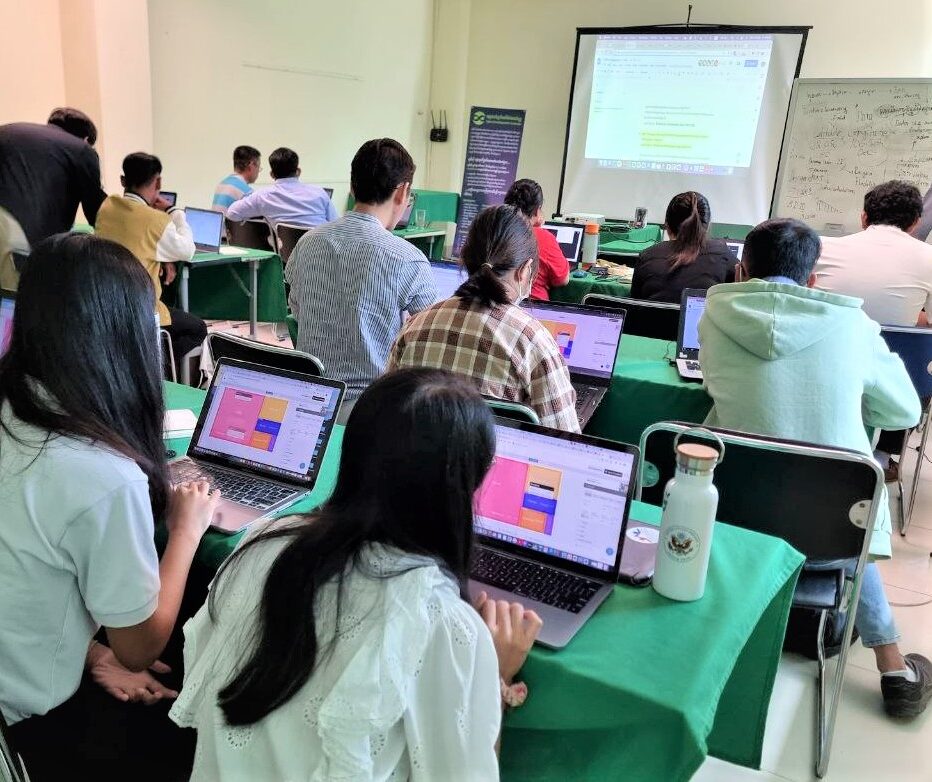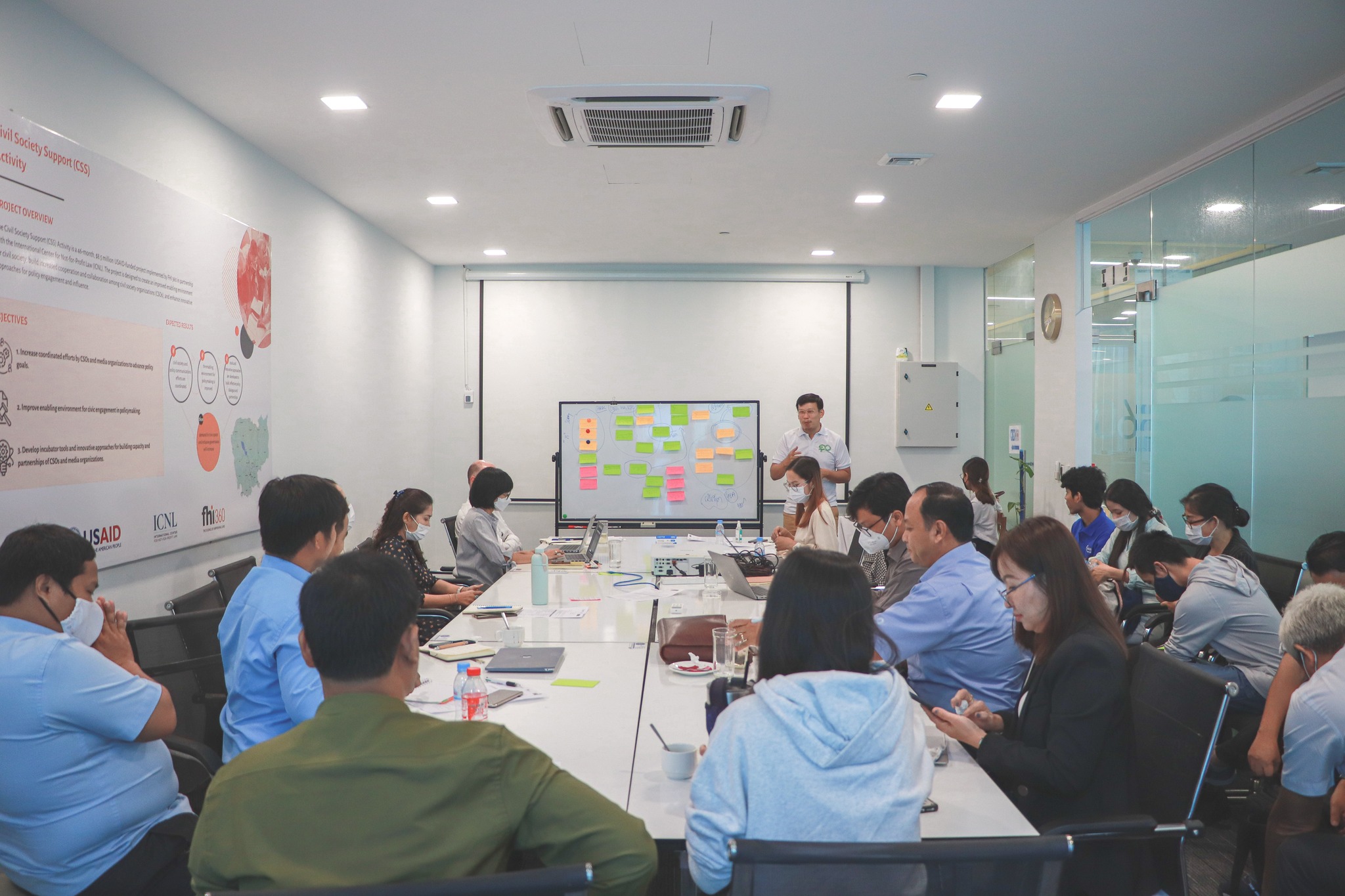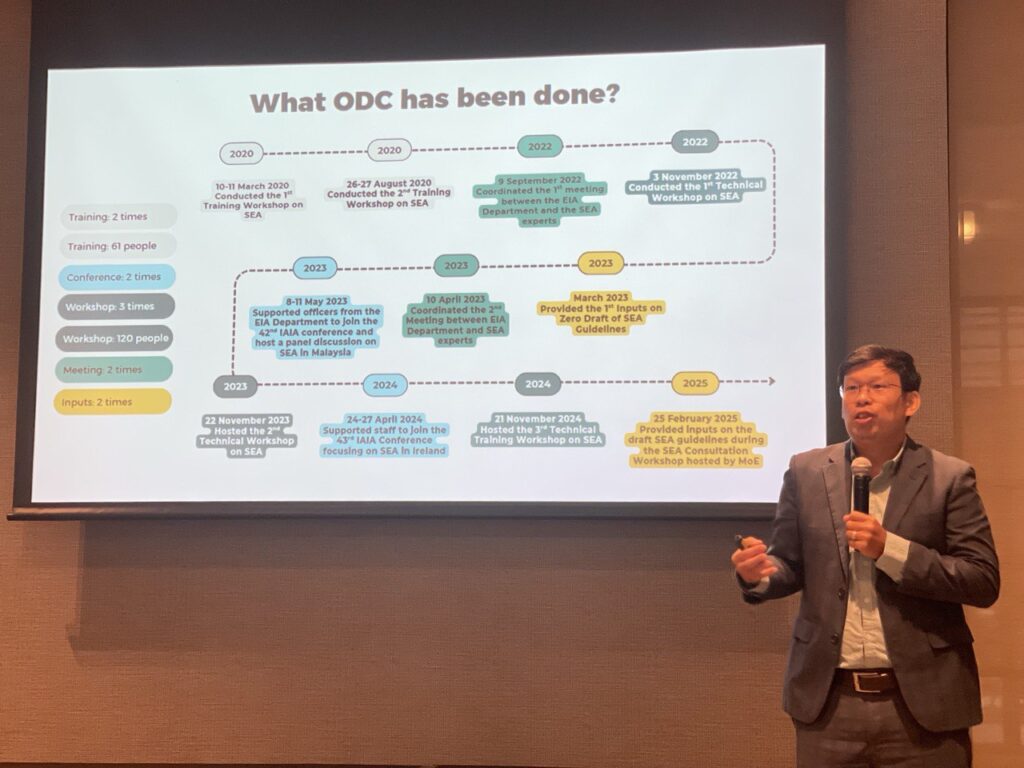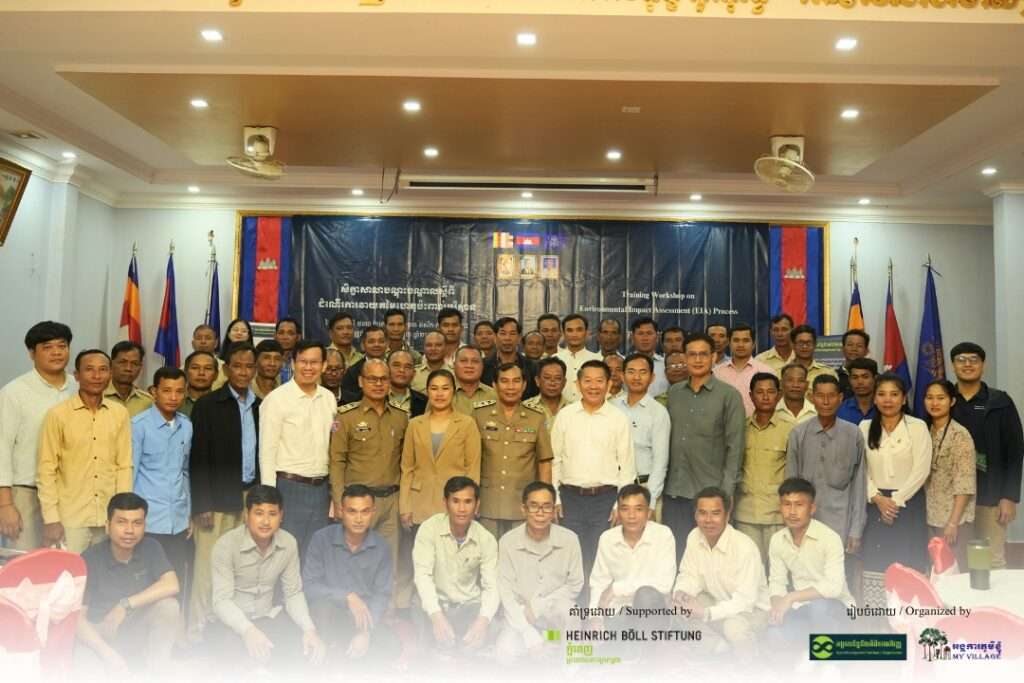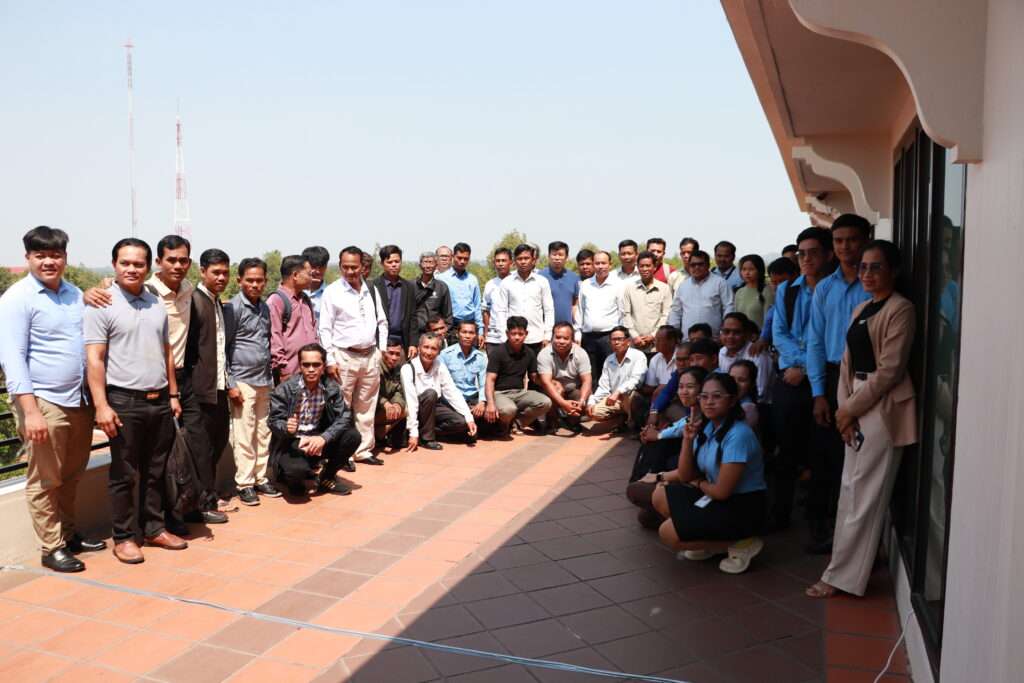1726
The Cambodian government has drafted an entirely new Land Law (the draft law), more than 20 years after the promulgation of the 2001 Land Law. Acknowledging the importance of participation from civil society, local communities, and indigenous peoples (IPs), Open Development Cambodia (ODC) formally sought an opportunity to review the draft law and was able to provide constructive inputs based on dialogues with relevant stakeholders.
In late January 2024, the Ministry of Land Management, Urban Planning and Construction (MLMUPC) drafted a comprehensive new Land Law, comprising seven titles, thirteen chapters, and a total of one hundred and ninety-nine articles. ODC formally submitted an official letter to the MLMUPC, requesting an opportunity to review and provide constructive inputs on the draft law. The MLMUPC approved the request and shared the draft law with ODC, providing a short window until 16 February 2024 for submitting inputs.
Dialogues highlighting key issues such as the need to protect collective rights, in particular, the rights of Indigenous peoples
ODC hosted two dialogues on the draft new Land Law – one on 13-14 February in Siem Reap Province and another on 15 February in Phnom Penh. The two dialogues were supported by the United States Agency for International Development (USAID) through Family Health International (FHI 360) under a Cluster Anchor Grant from the Civil Society Support (CSS) Project, ALIGN and LANDESA. During the first dialogue, a Cambodian legal expert presented an analysis of key articles of the draft Land Law to the participants. The participants then discussed and provided their inputs, concerns, and recommendations for the draft law.
Representatives from Indigenous peoples’ (IP) communities who were present during the dialogue raised concerns about the limited time provided for comprehending the proposed legal amendments, conveying their understanding to the communities, and gathering inputs from their members. They felt that the dialogue was more of an informative session than a consultative one.
As a result, representatives from the indigenous communities were unable to provide their input on the draft law and requested an extension of time for the consultation process. ODC and our partners sympathized with the response from the IP communities, as the timeline for the input was also a huge challenge for the team.
The second dialogue was held on 15 February in Phnom Penh, to consolidate the inputs and recommendations derived from the first dialogue in Siem Reap Province. Following the dialogues, ODC and partners prepared and submitted the consolidated inputs and recommendations to the MLMUPC. The document is published on the ODC website, and is publicly accessible. The document highlights several key issues, such as the need to clarify the protection guarantees for collective ownership, right to use, right to enjoy the fruit of the land and rights related to land and other immovable properties of IPs and Buddhist monasteries. The input also requested further consideration towards gender equity and the protection of the rights of IPs and local communities.
In early March, ODC attended a meeting hosted by the Land Law Working Group at the MLMUPC. According to the MLMUPC, more than 15 inputs from ODC were incorporated, including issues regarding the classification of public state land and private state land, the timeframe for the registration of communal land titles for IPs, promotion of equity in land rights and land administration, the specification of a timeframe for complaints, a filing process for complaints, and elaboration on the glossary.
ODC and our partners shared concerns regarding the time window for the submission of input. The time window for translating the draft law into English and sharing it with our international legal experts, as well as holding dialogues, meant that the input document did not cover all the key points as thoroughly as it could have, if more time were given in the first round. After the input submission, ODC hosted additional discussions and meetings and collaborated with partner organizations to gather more inputs.
On 11 March 2024, ODC hosted a knowledge sharing session on Women\'s Rights in Land Ownership and Natural Resource Management (NRM). Additionally, on 22 March 2024, ODC attended a meeting held by the Land Law Working Group of the MLMUPC to discuss the inputs that the working group has received so far. On 26 March 2024, ODC attended another workshop hosted by MLMUPC on the draft law. Then, on 26 April 2024, ODC and partner organizations supported a meeting organized by My Village (MVi) for consultation on the draft law, focusing on the process and challenges of indigenous communal land titling.
According to a Ministry officer, MLMUPC will continue to review and incorporate inputs as appropriate and will share a further revised draft law with relevant stakeholders. Based on that advice, ODC and partner organizations continued to review and collect further inputs for the revised version of the draft law and submitted our second round of inputs on the revised draft law on 7 June 2024. On 19 June after submission of our inputs on the revised draft law, MLMUPC shared with ODC the latest version of the draft law. ODC observed that none of our second round of inputs were taken and incorporated in the latest draft. ODC and partner organizations wish to be given further opportunity for a more constructive and serious consultation with the MLMUPC to discuss our inputs point by point.
The importance of national and international alliances to ensure an inclusive land law reform that protects the rights of all citizens
The collaboration with ALIGN and LANDESA has enabled ODC to engage in consultations with national and international stakeholders on the land law reform process in Cambodia, aligning with relevant international standards and principles of responsible investment in land governance. By uniting all stakeholders, ODC tries to promote transparency and responsible investment in land in Cambodia. The inputs submitted by ODC amplify the voices of local communities to the government, an important factor for promoting sustainability and inclusivity in land rights for every Cambodian.
While not all inputs and recommendations from ODC and our partners are expected to be taken by the government, the collaboration has sparked important discussions, particularly concerning land rights and land administration among underrepresented groups such as IPs, women, widowers, and LGBTQ+ individuals. Moving forward, ODC commits to continue working with partner organizations and stakeholders to discuss and explain our second round of inputs and provide more precise and complete suggested changes to the draft law to ensure that the new law is enabling, inclusive, equitable and effective, with minimized unintended negative impacts on vulnerable groups such as traditionally separated spouses, IPs and their communities, LGBTQ+ and unregistered land possessors, and avoiding regulatory or administrative taking of land and immovable property rights without fair and just compensation.
